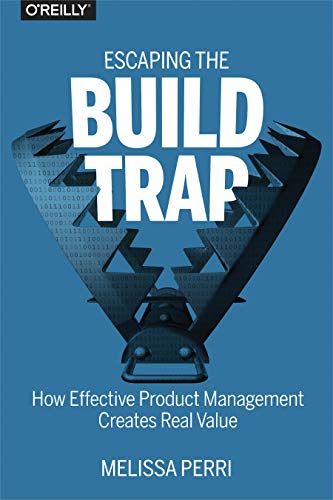John Cutler
I like the beautiful mess of product development. Head of Education @amplitude_hq, https://t.co/r7WzZtiPOw, https://t.co/WDld0BTODI
Book Recommendations:
Recommended by John Cutler
“Highly recommended book. Re-read it over the weekend and it was great the 2nd time around. https://t.co/6Lp1WCxZaM” (from X)
by Geoffrey West·You?
"This is science writing as wonder and as inspiration." —The Wall Street Journal Wall Street Journal From one of the most influential scientists of our time, a dazzling exploration of the hidden laws that govern the life cycle of everything from plants and animals to the cities we live in. Visionary physicist Geoffrey West is a pioneer in the field of complexity science, the science of emergent systems and networks. The term “complexity” can be misleading, however, because what makes West’s discoveries so beautiful is that he has found an underlying simplicity that unites the seemingly complex and diverse phenomena of living systems, including our bodies, our cities and our businesses. Fascinated by aging and mortality, West applied the rigor of a physicist to the biological question of why we live as long as we do and no longer. The result was astonishing, and changed science: West found that despite the riotous diversity in mammals, they are all, to a large degree, scaled versions of each other. If you know the size of a mammal, you can use scaling laws to learn everything from how much food it eats per day, what its heart-rate is, how long it will take to mature, its lifespan, and so on. Furthermore, the efficiency of the mammal’s circulatory systems scales up precisely based on weight: if you compare a mouse, a human and an elephant on a logarithmic graph, you find with every doubling of average weight, a species gets 25% more efficient—and lives 25% longer. Fundamentally, he has proven, the issue has to do with the fractal geometry of the networks that supply energy and remove waste from the organism’s body. West’s work has been game-changing for biologists, but then he made the even bolder move of exploring his work’s applicability. Cities, too, are constellations of networks and laws of scalability relate with eerie precision to them. Recently, West has applied his revolutionary work to the business world. This investigation has led to powerful insights into why some companies thrive while others fail. The implications of these discoveries are far-reaching, and are just beginning to be explored. Scale is a thrilling scientific adventure story about the elemental natural laws that bind us together in simple but profound ways. Through the brilliant mind of Geoffrey West, we can envision how cities, companies and biological life alike are dancing to the same simple, powerful tune.
Recommended by John Cutler
“@TaraLifBaum @shreyas @japborst @TeamTopologies @matthewpskelton @manupaisable @GergelyOrosz @swardley It is a big topic as it also relates to how the organization views product management / product development. I think @lissijean's book (Build Trap) is a great primer for this.” (from X)
To stay competitive in today’s market, organizations need to adopt a culture of customer-centric practices that focus on outcomes rather than outputs. Companies that live and die by outputs often fall into the "build trap," cranking out features to meet their schedule rather than the customer’s needs. In this book, Melissa Perri explains how laying the foundation for great product management can help companies solve real customer problems while achieving business goals. By understanding how to communicate and collaborate within a company structure, you can create a product culture that benefits both the business and the customer. You’ll learn product management principles that can be applied to any organization, big or small. In five parts, this book explores: Why organizations ship features rather than cultivate the value those features representHow to set up a product organization that scalesHow product strategy connects a company’s vision and economic outcomes back to the product activitiesHow to identify and pursue the right opportunities for producing value through an iterative product frameworkHow to build a culture focused on successful outcomes over outputs.

